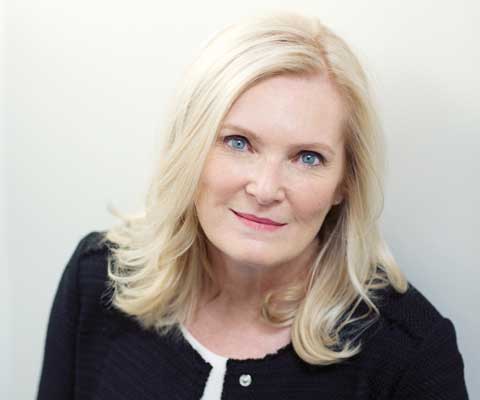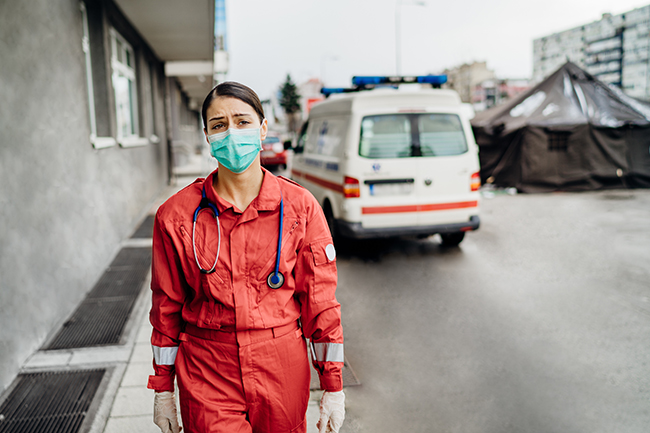York University is a diverse community working to tackle complex societal challenges. On March 11, 2020, when the World Health Organization declared COVID-19 – a novel strain of coronavirus – a global pandemic, York immediately began to navigate the unanticipated challenges.
One project chronicles the exceptional work that our researchers are undertaking to aid in the fight against COVID-19 and makes this information available to a wider audience.

This resource, now more than 150 pages, contains peer-reviewed scholarly publications, such as the Canadian Medical Journal Association, the Canadian Journal of Public Health and Infectious Disease Modelling; articles in The Conversation Canada, The Washington Post and The Globe and Mail; interviews with CBC and CTV; and more. With the user experience front and center, it is a searchable pdf where users can find research and expertise by faculty, school, researcher name and subject area.

“As a leading institution in health and health governance, disaster and emergency management, and disease modelling, York University is well-positioned to contribute to our collective understanding of the social, economic, environmental and health impacts of the pandemic as examined through an interdisciplinary lens,” says York University President and Vice-Chancellor Rhonda Lenton. “This valuable resource reflects York’s commitment to supporting innovative research, both basic and applied, that furthers worldwide response and recovery efforts and drives positive change in our local and global communities.”
“We bring expertise from across disciplines to build new tools and strategies to tackle the historic crises – the global pandemic being paramount. This list, created by Senior Manager of Research Communications Megan Mueller, is a living document that illustrates York’s tremendous diversity, highly collaborative cross-disciplinary strength. It also exemplifies the uniqueness of York’s fight against the pandemic,” said Vice-President Research & Innovation Amir Asif.

Indeed, York’s research contribution to the pandemic is unique and wide-ranging. It includes, for example:
- much-needed mathematical modelling, from the Faculty of Science, that predicts the spread of the pandemic;
- guidance and epidemiological expertise on COVID-19 from the Faculty of Health;
- from the Faculty of Liberal Arts & Professional Studies (LA&PS), critical examinations of racism and gender inequity that came to light during the pandemic, and policy-applicable research on the shortcomings of for-profit long-term care facilities; and
- an innovative theatre production from the School of the Arts, Media, Performance and Design that helps kids deal with the stresses of lockdown and isolation.
These examples from across the University illustrate York’s historic strengths in many areas: advancing fundamental inquiry and critical knowledge; building healthy lives, communities and environments; exploring and interrogating the frontiers of science and technology; and forging a just and equitable world.
The research and expertise on this list could be broadly categorized into three areas, work that:
- profiles research supporting treatment, vaccine development and expert advice;
- prioritizes the health and safety of staff, students and communities while remaining committed to student academic success; and
- showcases community impact during COVID-19 – that is, the individual and collective effort of students, ground-breaking discoveries of researchers, supporting emergency planning with local public health offices and the Province of Ontario.

This research contributes to the larger national efforts
Developing this list is only half the story, Mueller emphasizes. “This resource does not sit statically on the VPRI website. It is leveraged, disseminated and shared both internally, at York, and externally, reaching a national audience,” she says.
Internally, York’s YUBetterTogether website, regularly features these research items and more. YUBetterTogether offers the latest updates, lists of resources and services, and answers to frequently asked questions.
Mueller also reaches out to federal and provincial stakeholders for dissemination on a weekly basis. The Council of Ontario Universities leverages this important work and shares it with a wider audience within the province. COU provides a forum for Ontario’s universities to collaborate and advocate in support of their shared mission to the benefit and prosperity of students, communities and the Province of Ontario.
Another important stakeholder, Research Canada, also shares this work to its national audiences and often features York research on its HRI Portal. Research Canada is a national alliance dedicated to advancing health research through collaborative advocacy.
Adding to this, the Canadian Foundation for Innovation (CFI), the Canadian Institutes of Health Research (CIHR), Natural Sciences and Engineering Research Council of Canada (NSERC), Social Sciences and Humanities Research Council of Canada (SSHRC) and Universities Canada also share York research on social media channels.
“Research Canada, CFI, CIHR, COU, NSERC and SSHRC are exceptional collaborators. We are grateful for their assistance in helping to help spread the word about York’s ground-breaking pandemic research and expertise,” says Mueller. “Having York’s contribution to the COVID fight reach a wider audience is essential.”
To find the resource, visit the YUBetterTogether website, under Research & Innovation: https://www.yorku.ca/bettertogether/faculty/
